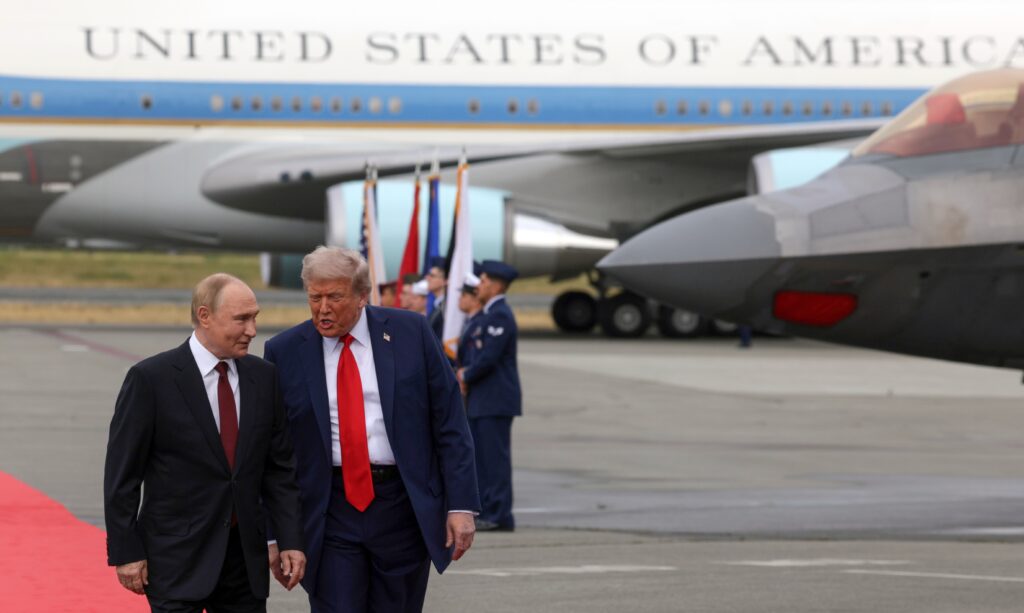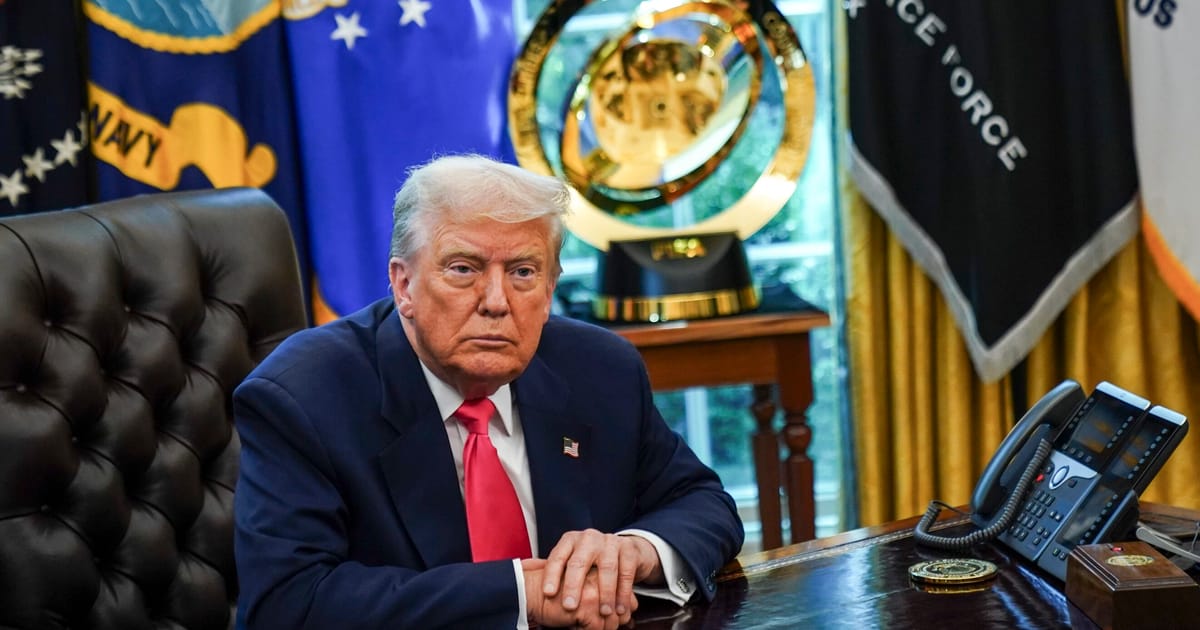Maria Shagina, a sanctions expert at the International Institute for Strategic Studies, said that while the Russian economy looks “superficially resilient,” it is already creaking under Western pressure.
 Many observers argue Russian President Vladimir Putin only engaged with Donald Trump in Alaska after Washington introduced high tariffs against India over its purchase of Russia’s economic lifeblood: oil. | Kremlin pool photo by Gavriil Grigorov via Sputnik/EPA
Many observers argue Russian President Vladimir Putin only engaged with Donald Trump in Alaska after Washington introduced high tariffs against India over its purchase of Russia’s economic lifeblood: oil. | Kremlin pool photo by Gavriil Grigorov via Sputnik/EPA
“Lower oil prices, the stagnation in the military-industrial sector, looming banking crisis and ever-growing military expenses put the Russian economy on the course of recession,” she said. “Sanctions on the Russian shadow fleet is one of many factors.”
Secondary sanctions of the kind that could be imposed by the U.S. on companies dealing with Russian firms “would dramatically exacerbate the existing problems of the Russian economy. However, the Kremlin doesn’t buy the Trump administration’s threats, so it thinks it can weather the storm for now.”
‘Carthage must be destroyed’
Yet, other measures to degrade Russia’s capabilities are being considered, including a ban on its diplomats being allowed to travel without restrictions around the Schengen free travel area. Proponents say that total freedom makes it harder to track intelligence officers who could be planning hostile acts far from the country that issued their visa.
“Just like Cato the Elder kept repeating that Carthage must be destroyed, I will keep proposing to end the free movement of Russian diplomats in Schengen,” Czech Foreign Minister Jan Lipavský told POLITICO. “It is an unnecessary advantage we give to the Russian regime, and it is being abused to facilitate sabotage operations.”
Foreign ministers from across the bloc will meet at an informal summit later this week, where a discussion is scheduled with the EU’s top diplomat, Kaja Kallas, on how to sharpen economic restrictions on Russia.
